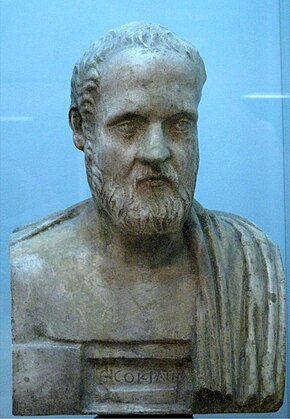Difference between revisions of "Humanities"
From eagle-rock.org
| Line 18: | Line 18: | ||
==See also== | ==See also== | ||
| − | {{ | + | ===Pages under the topic WriteNameHigherTopic=== |
| + | {{#ask:[[Higher topic::WriteNameHigherTopic]] | ||
| + | |format = template | ||
| + | |?IconImage | ||
| + | |template = Pages under topic | ||
| + | |searchlabel= | ||
| + | |introtemplate = Pages under topic/intro | ||
| + | |outrotemplate = Pages under topic/outro | ||
| + | |limit = 8 | ||
| + | |offset = 0 | ||
| + | }} | ||
[[Category:Humanities]] | [[Category:Humanities]] | ||
[[Category:Culture start pages]] | [[Category:Culture start pages]] | ||
Revision as of 08:20, 21 March 2016
| Humanities | |||
|---|---|---|---|
|
| |||

| |||
| Caption: | Isocrates was one of the foremost thinkers about paideia. In ancient Greece, paideia referred to the rearing of the ideal member of the polis. | ||
Higher topic: Culture
Underlying topic(s): Architecture, Law, Politics, Psychology, Sociology, Technology
Underlying topic(s): Architecture, Law, Politics, Psychology, Sociology, Technology
- The humanities are academic disciplines that study human culture, using methods that are primarily analytical, critical, or speculative, as distinguished from the mainly empirical approaches of the natural sciences.
- The humanities included on this site are: Anthropology, Archeology, Architecture, Classics, Education, History, Languages, Law, Literature, Philosophy, Politics, Psychology, Religion, Sociology, Technology.
- Scholars in the humanities are called "humanity scholars".
- The humanities have their origin in the Classical Greek paideia, a course of general education dating from the sophists in the mid-5th century BCE, which prepared young men for active citizenship in the polis, or city-state.
